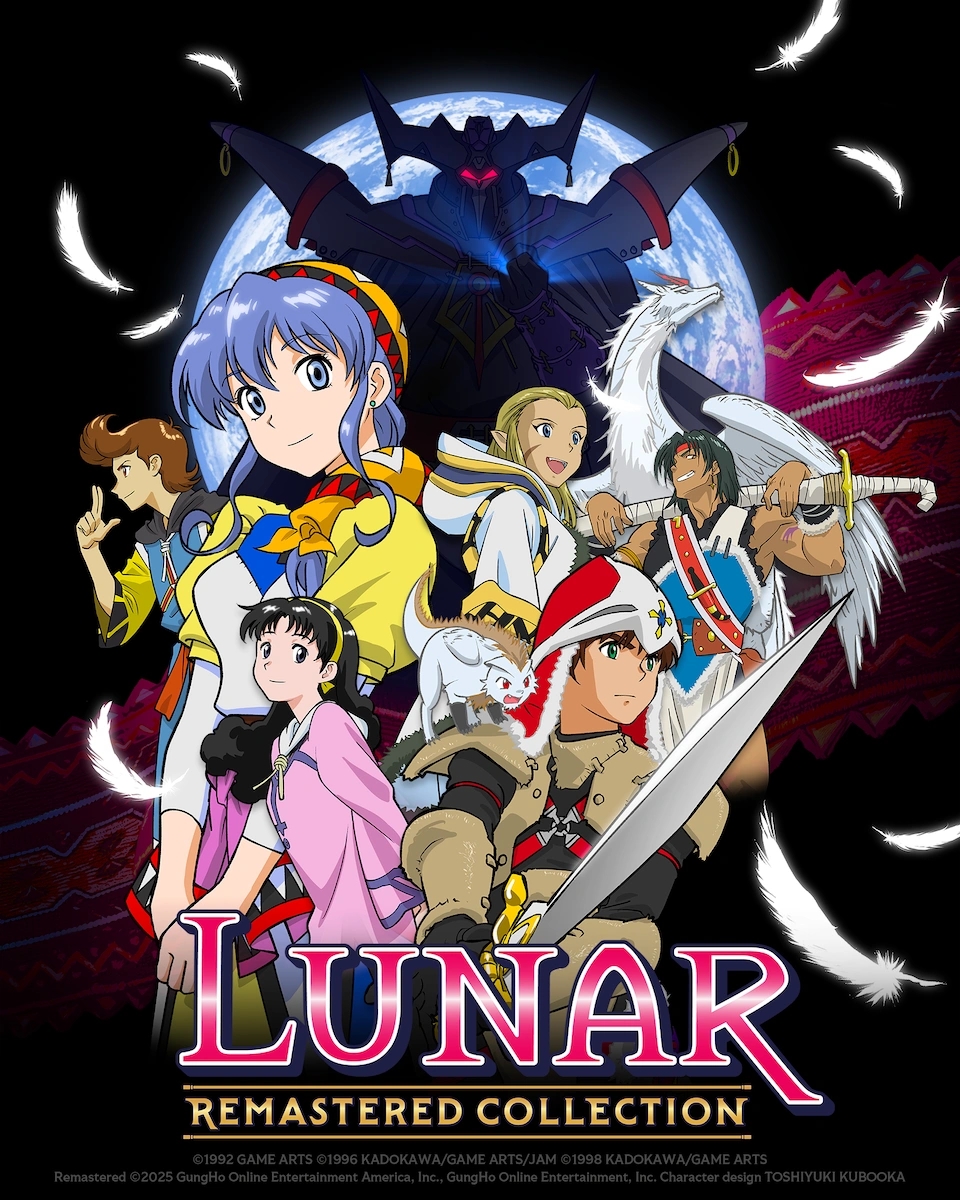The LUNAR Remastered Collection is Another Lazy, Overpriced Retro Game Remaster... But I Like it Anyway

Just about anyone who was a console JRPG fanatic back in the day should be familiar with the LUNAR franchise. While SNES owners rightfully got to gloat about their console being the exclusive home of Final Fantasy and other Squaresoft titles, but the original Sega CD versions of LUNAR: The Silver Star and LUNAR 2: Eternal Blue admittedly invoked a twinge of envy for those who hadn't invested in Sega's platform. While I would hold that the 16-bit Final Fantasies are superior games in almost every regard, there was still something to be said about the anime cutscenes and voice acting that were made possible by the amount of storage the CD-ROM format provided.
Then the Playstation came along and rendered the results of the 16-bit war irrelevant. LUNAR was brought to a wider audience by way of 32-bit remakes. Due to the reach of the PS1, LUNAR: Silver Star Story Complete and LUNAR 2: Eternal Blue Complete ended up being the versions that most of us actually played (notably, there were also Sega Saturn versions of the remakes, but they were limited to Japan). The English language localizations for both the Sega CD and PS1 versions of the games were handled by Working Designs, a company with a penchant for translating niche titles (mostly RPGs) and injecting corny, 1990s pop culture humor into them.
Though rumors of LUNAR 3 fizzled out, the first LUNAR game would receive two additional remakes. A GBA version (Dubbed LUNAR Legend) and a PSP remake (LUNAR: Silver Star Harmony). Working Designs was not involved in these projects, having sold the English language rights back to Game Arts, the Japanese publisher, and then subsequently folding due to financial issues. There was also a disastrously bad prequel game for the Nintendo DS, LUNAR: Dragon Song, which was so critically panned that it seemed to spell doom for the franchise and dashed fans' hopes that we'd ever see a proper sequel to LUNAR 2.
Stepping back to Working Designs, the translation liberties taken by them tended to be controversial amongst the purist crowd, to the point where fan translators produced ROM hacks for the PS1 and Saturn releases to provide a game script more faithful to the original Japanese text. WD also made some balance tweaks to the games that some felt were unnecessary.
Fast forward to the 2020s: Likely realizing that there was easy money to be made in releasing HD remasters of old titles, GungHo Entertainment (which had acquired Game Arts in 2005) decided to revisit LUNAR by this means. The LUNAR Remastered Collection was released on April 18th, 2025 globally for modern consoles and PC and contains "remastered" versions of LUNAR: Silver Star Story Complete and LUNAR 2: Eternal Blue Complete.
From an initial perspective, these are as barebones as "HD Remasters" can be. They are, in essence, the same games as the PS1 titles with some only very minor changes. Notably:
- The map and battle screens are now rendered at widescreen resolution.
- You have the option to switch to a simplified inventory system.
- You can increase the speed of battle (which in my book is a huge QOL boost).
- You can now switch to the Japanese audio tracks, which is great for 1990s anime fans since they feature some heavy hitters of the era such as Ishida Akira, Yokoyama Chisa, Midorikawa Hikaru, Seki Tomokazu, and Hayashibara Megumi.
The game does commit one of my bigger pet peeves, however, in that they did some very weird upscaling on the anime cutscenes and in-game portraits. It isn't detrimentally bad but it clashes with the pixel art aesthetic. The new in-game font is also inferior to the one used in the PS1 releases, at least in my opinion.
Aside from that, there isn't anything significantly new from an overall game perspective. There are "remastered" tweaks here and there but no new special features or game play modes. I would have loved to see a boss rush mode where you can build a party from both the LUNAR 1 and 2 heroes, new special features or series retrospectives, and art or music gallery, or something else. Hell, in a dream world I would have loved to see them include remasters of the Sega CD versions (The LUNAR 1, especially, had significant plot differences). Some fans are also upset that they went with the PS1 version of the soundtrack, considering the Saturn releases to actually have better instrumentation. The ability to switch to the Saturn versions of the songs would have been a cool option, at the very least.
Here is where things get very baffling for me. It is well known that the Working Designs translation is controversial, and many people saw this as an opportunity to put a fresh coat of paint on the series by releasing a new official localization. For whatever reason, GungHo ended up using the Working Designs translation, with only some very minor edits. Almost every liberty Vic Ireland and his team took remains intact, including the decision to depict the town of Meryod as bunch of inbred hicks (I mean this literally). At the same time, they re-recorded the English voice track. I'm not sure why they bothered when they just had them spout the same lines (there is a theory it is because Vic Ireland claims he still owns the legal rights to the voice track).
I will state that I don't actually mind the new English language track. While I can acquiesce that the way John Truitt depicted Ghaleon was somewhat iconic, and that the vocal songs were performed well. Yet for the most part I never thought the Working Designs voice track was all that great. Overall, I always felt it had the same poor to middling quality that most English language anime dubs got in the 1990s. The new track isn't that much better, it was clear it was a rush job, but I think most of the new voices are at least on-par or a bit superior to the original ones. I usually go full weeb and flip on the JP voice tracks when given the option, but in the case of LUNAR 1 I have been flipping between the two at times so far.
So yes, overall this does feel like an obvious cash in by the publisher given everything. Yes, it's $50 (as of this article) for both games rather than each, but that's still a steep price given the overall lack of new features to games that are now over a quarter century old. Of all the changes made, the ability to speed up the combat, coupled with the near instantaneous loading on the Steam version (compared to the old PS1 version) is the only real big change for me. This does make everything feel far less grindy, to be honest.
Ultimately this is still LUNAR. What you see is what you get, and it is now the easiest way to legally play the "complete" versions of the game. The story (especially LUNAR 1) is a bit juvenile and the gameplay mechanics are incredibly straight forward, but it's still gotten me to take a fun trip down nostalgia lane that I'd been putting off. The Steam version is also Deck Verified, and overall the experience is less tedious than dealing with an emulator or dragging out old hardware. It isn't a terrible purchase, all things considered, and it is hard to complain about games that still mostly stand the test of time despite their overall simplicity.
Who knows? Maybe this release will sell well enough that GungHo/Game Arts will actually consider a more proper return to the franchise. I'd love to see a realization of LUNAR 3 that uses the same 1990s anime art aesthetic, but takes a more modernized approach to exploration and combat (A LUNAR game with Tales of style combat would be pretty cool). This is probably wishful thinking, but it'd be nice to get more than a barebones remaster of games we've already played.
